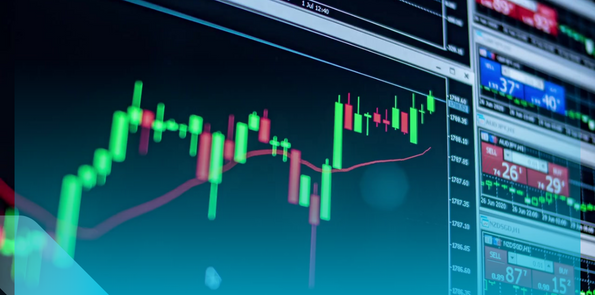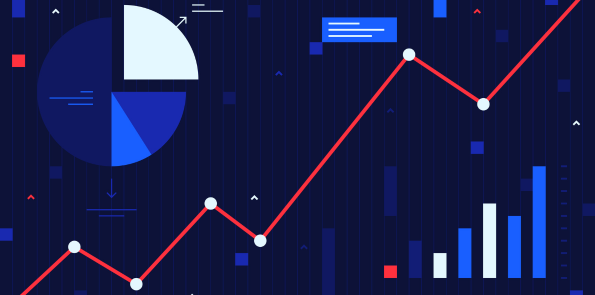Forex Trading Essentials: A Comprehensive Guide for Beginners

Обзоры рынка
h1: Forex Trading Essentials: A Comprehensive Guide for Beginners
h2: Introduction to Forex Trading
Forex trading has gained immense popularity in recent years. With its decentralized nature and potential for high returns, it is no wonder that many people are diving into the world of Forex trading. However, for beginners, the complexities of the market can be overwhelming. This comprehensive guide aims to provide all the essential information you need to get started in Forex trading.
h2: What is Forex Trading?
Forex, short for foreign exchange, is the buying and selling of currencies. It is the largest and most liquid market in the world, with an average daily trading volume of over $6 trillion. Unlike stock markets, Forex operates 24 hours a day, five days a week, allowing traders to participate from anywhere in the world.
h3: Forex Market Participants
The Forex market consists of various participants, such as banks, corporations, central banks, hedge funds, and individual traders. Each entity plays a different role, and their transactions collectively shape the market.
h3: Currency Pairs
Forex trading involves the trading of currency pairs. The first currency in the pair is the base currency, and the second currency is the quote currency. For example, in the EUR/USD pair, the euro is the base currency, and the US dollar is the quote currency.
h3: How Does Forex Trading Work?
Forex trading involves predicting the future movement of currency pairs. Traders aim to profit from fluctuations in exchange rates by buying low and selling high. This is done through a Forex broker, who acts as an intermediary between the trader and the market.
h3: Fundamental vs. Technical Analysis
To make informed trading decisions, traders rely on two types of analysis – fundamental and technical analysis. Fundamental analysis involves studying economic indicators, news events, and geopolitical factors that impact currencies. Technical analysis, on the other hand, involves using charts, patterns, and indicators to analyze past price data and predict future price movements.
h3: Risk Management
Risk management is a crucial aspect of Forex trading. Traders must set stop-loss orders to limit potential losses and use proper position sizing to manage risk. It is essential to never risk more than you can afford to lose.
h2: Getting Started in Forex Trading
h3: Education and Research
Before diving into Forex trading, it is crucial to educate yourself and gather as much information as possible. Start by understanding the basics of Forex trading, including terminology, trading platforms, and market dynamics. There are numerous online resources, articles, courses, and even demo accounts that can help you gain the necessary knowledge and experience.
h3: Choosing a Reliable Forex Broker
Selecting a reliable Forex broker is of utmost importance. Look for a broker regulated by reputable financial authorities, as this ensures that your funds are protected. Consider factors such as trading platforms, account types, customer support, and transaction costs before making a decision.
h3: Setting Up a Trading Account
Once you have chosen a broker, open a trading account. This involves providing the necessary identification documents and filling out the required forms. The process is usually straightforward and can be completed online. Ensure that you understand the terms and conditions of the account before proceeding.
h3: Developing a Trading Strategy
A trading strategy details the rules and guidelines you will follow to make trading decisions. It should include entry and exit criteria, risk management rules, and the timeframe you will trade. Avoid jumping into trades without a plan, as it can lead to impulsive and emotional decision-making.
h3: Practicing with a Demo Account
Most Forex brokers offer demo accounts, which allow you to practice trading with virtual funds. This is an excellent way to test your trading strategy and gain valuable experience without risking real money. Spend enough time honing your skills through demo trading before moving on to live trading.
h2: Tips for Successful Forex Trading
h3: Start with a Small Account
When starting out, it is advisable to begin with a small trading account. This ensures that even if you incur losses, they will not have a significant impact on your overall financial situation.
h3: Keep a Trading Journal
Maintaining a trading journal helps you track your trades, analyze your performance, and identify areas for improvement. It enables you to learn from your mistakes and refine your trading strategy over time.
h3: Stay Updated with Market News
The Forex market is influenced by various economic and political factors. Stay informed about upcoming news events, economic releases, and important announcements that may impact currency prices. This knowledge will help you make more informed trading decisions.
h3: Be Patient and Disciplined
Forex trading requires patience and discipline. Avoid chasing after every trade opportunity and stick to your trading plan. Do not let emotions such as fear or greed dictate your trading decisions.
h2: Conclusion
Forex trading can be a lucrative venture if approached with the right knowledge and mindset. This comprehensive guide provides beginners with essential information to navigate the Forex market successfully. Remember to educate yourself, choose a reliable broker, develop a trading strategy, and practice with a demo account. With time and experience, you can become a skilled Forex trader capable of making informed decisions and capitalizing on market opportunities.



